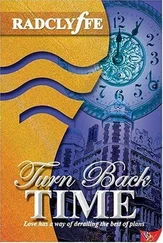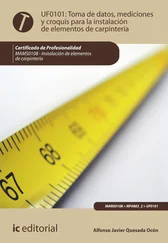It does not appear that these celebrated gunslingers were motorized, which again casts suspicion on Graham, according to whose version the unfortunate subject of His Majesty was an honorable merchant walking down the street with his family when he was fired upon. It is a strikingly novelistic injustice that the only person to lose his life in this illustrious free-for-all was the complete outsider to it all, who got a hole in his forehead (that is, had no chance of survival), while the others came away with wounds in their limbs, including poor right-handed Pepete, who may have had to stay out of the bullring for a while, and the dignitaries themselves, the defiant Constantino and the injurious Leovigildo, though the former was left with a scar on his cheek. Sure shots indeed, that carried away, within three days, George Steabben and Wilfred Ewart. And the bullet that killed Ewart is so implausible that if it had occurred in a novel and not in life no one could give the slightest credence to the incredible fact that death entered him directly through his sightless eye, the eye no image had ever passed through, the eye that was never connected to the brain and was therefore independent of its control for thirty years, to become, at the end of all that time, the fatal conduit through which the bullet that lodged in the skull entered and finally connected them, eye and brain, but only in the moment of their cessation. As the Mexican newspapers of January 4 made it their business to trumpet, once they had learned the dead man’s story from Graham who issued a statement and identified the body, it was already “a cruel irony of fatal destiny” that the man who had lived through “more than a hundred battles” and had been “respected by the enemy bullets” and had “defied death on innumerable occasions” had been brought down unarmed in Mexico by some fool’s shot fired off at random when, out of mere curiosity, he went out onto the balcony of his room on a night of revelry (“Fate Brought Him to Mexico,” read one of the subtitles, with a certain punitive satisfaction). Yes, it was a strange fate or chance or whatever it is that we call it, and we speak of it less and less, this thing which generally occurs only in life, bad novels and good stories, in the first of these to an extreme degree. But to make fate or chance or destiny a little less strange, Ewart’s bullet could at least have gone into his forehead, as Steabben’s did, or his heart or his jugular or his mouth, or the other eye with which he did see and whose light had not yet been put out, not even for the first time. But it went straight into the blind eye, just beneath the eyebrow, shattering the lens of Ewart’s glasses without damaging the frame, I don’t know if he was still wearing the glasses when they found him. These chance events and coincidences don’t really matter; we might imagine that if the bullet (which couldn’t be seen by the unfortunate eye it found in the darkness) had gone toward the other eye it might have been eluded — but bullets are never seen, and only in old books are they heard to whistle, or so Jünger says — and we might also imagine that there was an element of mercy in the direction taken by the stray bullet among the infinity of possible courses, if the eye was thus spared the sight of what was coming to it. What does it matter, nothing is really that strange, and who would be interested, there are no hidden forces guiding anything or leading anyone to the place of his death, all possibilities are contained in the passage of time, that is, in the past and the future. There’s little sense in lament or astonishment, Graham’s, expressed in his books, or Gawsworth’s, or Conan Doyle’s, in far-off Mother England, or that of the Mexican journalists who aspired to a solemnity they didn’t know how to attain, as they brought their sentences to a close: “Sad was the end of this British officer, who after having risked his life many times in the most terrible combats history records, came to die in such a way.” What a pity to want to soar without knowing how, it happens to most of us.
But there were still greater perplexities in store for those readers who were following this story that the world very quickly forgot and that probably no longer matters to anyone. Another daily paper, El Universal , gave, on January 3, an all-too-different version of the discovery of the body of a man who, for this article’s writer, had borne the name “Herbert Gore,” as if he had guessed the pseudonym used by Ewart for his fantastic tales and had decided to use it in describing his death, which seemed fictitious. The disturbingly contradictory paragraph was this one: “Since the police found no pistol, the hypothesis of Señor Mellado was accepted as certain, that is, that Señor Gore had received the wound that caused his death when he was on the balcony of his room, sitting in an armchair, because on said article of furniture a large blood stain was found, which demonstrates that he was there when he received the mortal wound.” This is truly an unresolvable contradiction, and not only because the other paper, Excélsior , made absolutely no mention of any such armchair or stain. If Ewart stepped onto the balcony out of simple curiosity when he heard the shots (“Mr. Graham believes,” said Excelsior on the following day, “that his friend, on hearing shots fired, went out onto the balcony to see what it was all about and that his curiosity was explicable given that he was a soldier who for many months had continually heard the rat-a-tat of artillery and the booming of cannon”), it makes no sense that he would take the trouble to lug an armchair out there beforehand, nor that he would do so after hearing the shots, as if preparing to spend a long time watching a spectacle that he can’t have seen much of in the distance with his one blind eye. If, on the contrary, the armchair was not on the balcony, but showed the blood, then Ewart couldn’t have died “instantaneously”; he would have had to take a few steps before collapsing into its softness and leaving that stain on the upholstery, but in that case the body couldn’t have been found stretched out on the balcony, as its discoverer stated and the hotel administrator reconfirmed, unless, after having soiled the chair, Ewart had dragged himself back to the balcony to call out for help from there, a rather futile thing when the street was full of the rousing “rat-a-tat” of firecrackers and pistol shots. Nor does it seem probable that, even if death was not instantaneous, he would have had time to do much strolling about. Señor Mellado, it has to be said in passing, must have been a disastrously bad detective if the fact of not finding any weapon in the room struck him as conclusive proof that the bullet had come from outside, as if murderers were in the habit of leaving their firearms next to their victims in order to make the police’s work that much easier. And Stephen Graham’s explanation of Ewart’s curiosity is entirely unnecessary: a man does not need to have heard the famous rat-a-tat for months during a war in order to take a look out at the street, whether or not shots are being fired there.
There was something excessive in the statement by Graham that was reprinted by the newspapers on January 4 in unusually complete form: not only were the principal and secondary facts of the life and personality of Ewart given — his origins, his books — but also all the random circumstances that had brought him to Mexico which I related earlier, including his great distress at the lack of a change of clothes. Excélsior noted: “Señora Graham explains that he stayed in the city waiting for his luggage, since he was known in London social circles as an exemplarily well dressed person, and the fact of not receiving his short pants (trunks) was greatly irritating to him. ‘It was just an accident that he travelled to Mexico.’ ” The first sentence is so absurd — making elegance depend on a pair of shorts, and if they were underwear the thing is even more demented, it wouldn’t have ruined him to buy himself a pair of local zaragüelles —that we may suspect an erroneous translation of the word “trunks” here. In any case, the Mexican reporters had the undeniable merit of extracting a few words from the silent and mysterious Mrs. Graham, who does not generally appear, by mention or description, in a speaking or active role, and hardly even as a passive presence, in her husband’s travel books, even when she accompanied him from the first day of the expedition to the last (Rose Savory was her maiden name, it would seem). According to Excélsior , she added yet another line about Ewart, perhaps superfluous if it wasn’t in answer to a specific question: “He had a very pleasant personality, in the opinion of all those who knew him, and he had no enemies, Señora Graham stated.” She was being rather audacious here, no doubt, for the second of her claims is a difficult one to make about the winner of a great victory, though perhaps by 1923 he had ceased to have enemies.
Читать дальше












